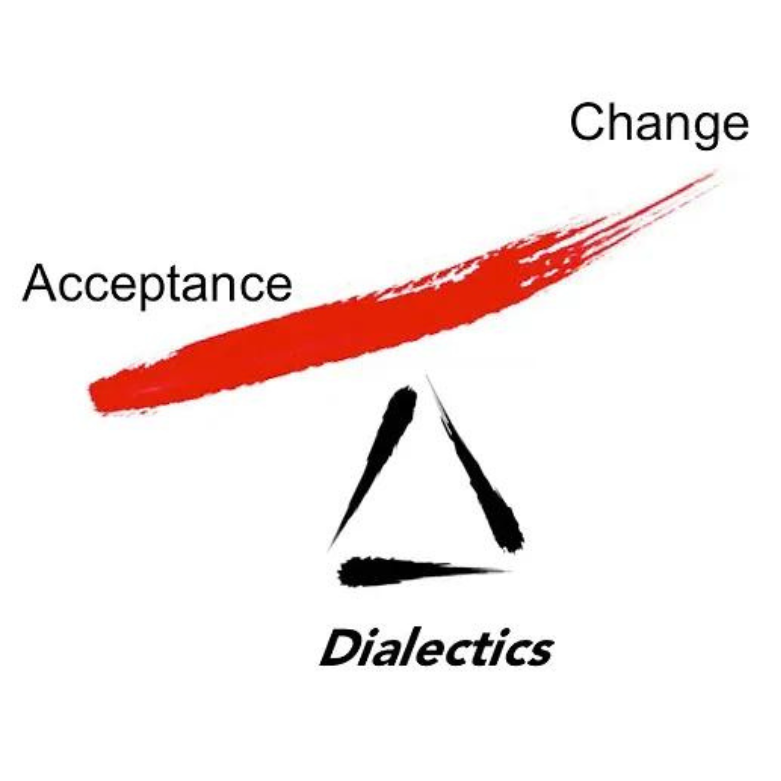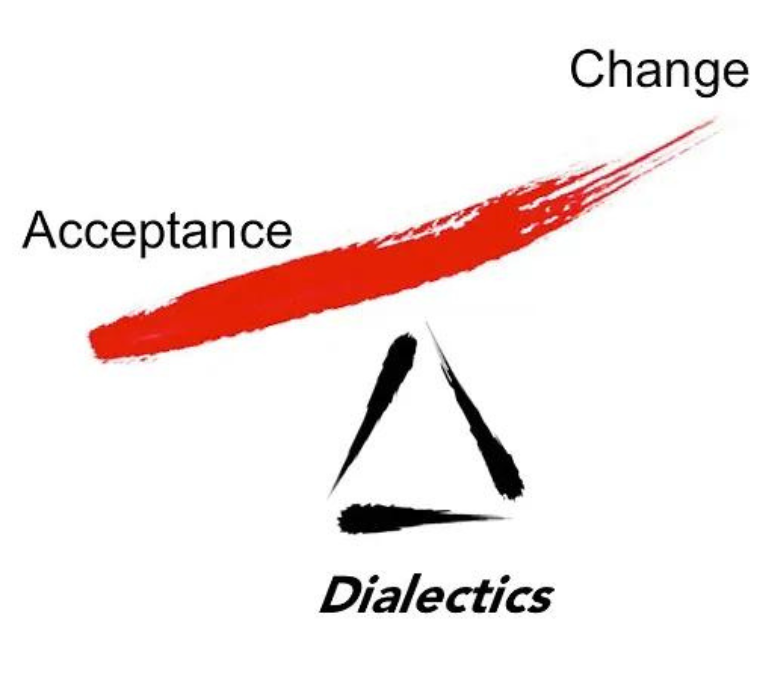Find a CBT Therapist
Search through our directory of local clinicians.
The Borderline Personality Disorder, Emotion Science, and Treatment Lab (BESTLab)
Meet ABCT’s Featured Lab
The Borderline Personality Disorder, Emotion Science, and Treatment Lab (BESTLab), located in the Department of Psychology at Palo Alto University, is directed by Janice Kuo, Ph.D.
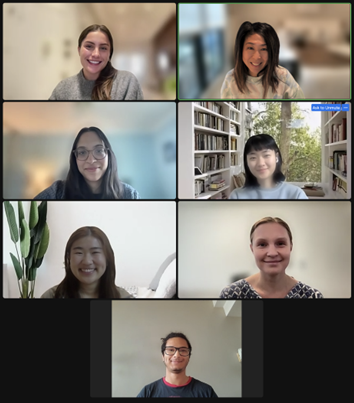
Trainee Lab Members
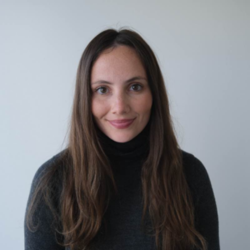
Ariella Lenton-Brym, Ph.D.
Ariella has been a postdoc in the BESTLab since September 2022. She is primarily interested in investigating trauma-focused interventions for dysregulated individuals and couples, as well as understanding the impact of trauma-related psychopathology on relationship functioning.
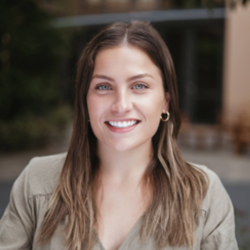
Danielle Esses, M.S.
Danielle Esses is a doctoral candidate at the PGSP-Stanford PsyD Consortium and intern at Montefiore Medical Center. She gravitates toward treating high acuity, trauma-associated presentations, such as BPD, PTSD, and substance use disorders. Her research interests are in the roles of childhood trauma and emotion dysregulation in the development of BPD, as well as in mechanisms of change in psychotherapy.
Her dissertation, “Emotional Acceptance and Change in DBT: Does Order Matter?” investigated facets of emotion dysregulation as sequential mechanisms of change in DBT.
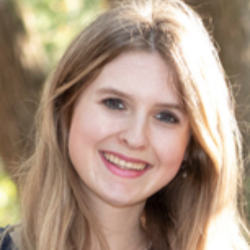
Katherine Christensen, M.S.
Katherine Christensen is a 5th year doctoral candidate in the PGSP-Stanford PsyD Consortium who originally grew up in the San Francisco Bay Area. She has interests in trauma, risk, and resilience; substance use, harm reduction, and dual diagnosis; and social justice within healthcare.
Katherine’s graduate research has been focused on the impact of trauma among individuals with histories of self-harm and emotion dysregulation as well as exploring the effectiveness of novel interventions for individuals with co-occuring borderline personality disorder and post traumatic stress disorder (BPD-PTSD).
Her dissertation explored the impact of different forms of childhood trauma among those with comorbid BPD-PTSD. In her free time, Katherine loves to spend time with her partner, family, friends, and yellow lab; watch movies; read books; and explore new places!
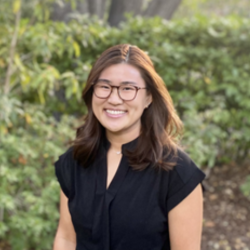
Rachel Wong
Rachel is a 3rd year doctoral student in the PGSP-Stanford PsyD Consortium. Her clinical interests include working with PTSD, risk and resilience, acute suicide risk, and preventative community care. In particular, she is interested in continuing her training working with survivors of violent crimes and the AAPI community. She is currently at the Stanford Adult Inpatient Unit working with severe mental illness and comorbid diagnosis across a diverse patient population.
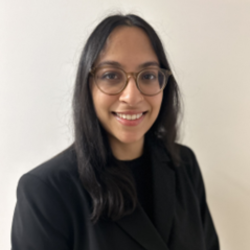
Kamya Goenka
Kamya received her BA (with Specialized Honors) in Psychology from York University in 2022. Through her previous and current research involvement, Kamya has gained knowledge on suicidal and self harming-behavior (SSI), BPD, intimate relationship issues, and Post Traumatic Stress Disorder (PTSD).
Kamya’s interests lie in researching interventions and treatments for disorders involving trauma, SSI, and emotion dysregulation and as well as researching interventions for close others (e.g., family and friends) of individuals suffering from these disorders. Kamya hopes to pursue further studies in Clinical psychology to gain knowledge on conducting therapy while still continuing research work in this field.
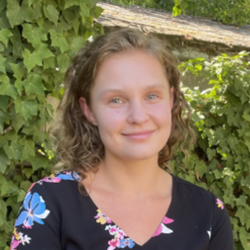
Jamie Hattler, M.S.
Jamie Hattler is a 4th year clinical psychology doctoral candidate at the PGSP-Stanford PsyD Consortium. Her clinical and research interests include the intersection of PTSD, and BPD, and trauma treatment mechanisms and symptom targets. She is currently working on her dissertation evaluating the impact of STAIR on PTSD intrusion symptoms.
Jamie is a psychology extern at the San Francisco VA, where she works in the Women’s Clinic, the PTSD clinic, the DBT Clinic, and the Couples and Family Clinic. Jamie hopes to specialize in trauma treatment while also continuing to work with a wide range of presenting problems.
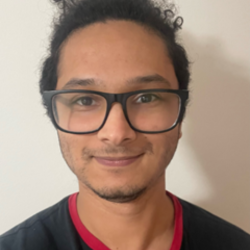
Yalis Waris
Yalis graduated from Cornell in 2023 with a BA in Psych. He is interested in researching emotional awareness interventions and how emotional awareness intersects with the sense of self. He hopes to do a Clinical Psych PhD and practice in a clinical setting for some years before returning to research. In his free time, he often reads fantasy as well as eastern philosophy. He has done 7 years of longsword training through a HEMA organization, and now trains in Kyudo and Iaido.
Janice Kuo, Ph.D.
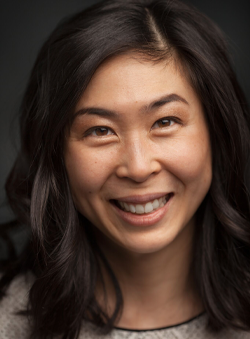 Dr. Kuo received her Ph.D. at the University of Washington and is a Professor at the PGSP-Stanford Psy.D. Consortium at Palo Alto University where she is involved research, teaching, and supervision. Her scientific work focuses on clarifying emotion-related dysfunctions underpinning Borderline Personality Disorder (BPD), PTSD, and suicidal behaviors, and developing innovative treatments for these populations. Dr. Kuo has published numerous scientific articles on these topics and her work has been funded by the National Institutes of Mental health and the Canadian Institute of Health Research. She enjoys traveling with her family, cuddling with her pup, and drinking fancy coffee.
Dr. Kuo received her Ph.D. at the University of Washington and is a Professor at the PGSP-Stanford Psy.D. Consortium at Palo Alto University where she is involved research, teaching, and supervision. Her scientific work focuses on clarifying emotion-related dysfunctions underpinning Borderline Personality Disorder (BPD), PTSD, and suicidal behaviors, and developing innovative treatments for these populations. Dr. Kuo has published numerous scientific articles on these topics and her work has been funded by the National Institutes of Mental health and the Canadian Institute of Health Research. She enjoys traveling with her family, cuddling with her pup, and drinking fancy coffee.
The BESTLab aims to identify key affect-related mechanisms underpinning severe psychopathologies (i.e., BPD, PTSD), and developing/refining treatments to target these mechanisms in order to enhance the efficacy, accessibility, and efficiency of patient care. BESTLab projects include a collection of treatment studies designed to delineate core and/or essential elements of Dialectical Behavior Therapy and trauma-based treatments, as well as basic experimental studies of affect-related processes using self-report and physiological data collection methods. The lab is currently implementing an NIH-funded project examining the effectiveness of Cognitive Processing Therapy augmented with suicide risk management for individuals with comorbid BPD and PTSD.
How long have you been a member of ABCT?
Since 2001.
How often and why do you attend the ABCT convention?
I generally attend the ABCT convention every year. ABCT has been instrumental in kindling my passion for research and spearheading collaborations with wonderful (and often new) colleagues, many of which have led to novel directions in both my research and clinical work.
How do you stay current with developments in the field (research and/or practice and/or policy)?
Attending ABCT is certainly one way I stay current with research and clinical practice. As well, given that I typically teach several courses that are related to my clinical and research expertise, when I prepare for these courses, I review updates to the literature to ensure that I integrate current research/issues relevant to these topics.
How has ABCT helped you/your lab professionally (e.g., network/collaborate, stay current with developments in the field, meet prospective/former trainees)?
ABCT has been one of the best ways for me to reconnect with former trainees/students, as well as with my national and international colleagues. I have developed many life-long collaborations through ABCT, which has led to some of the most fun and impactful studies I have conducted to date.
Does your lab have any traditions? Does your lab do anything together for fun?
We don’t have any traditions, but this makes me think I need to start one! The BESTLab was actually formed during the pandemic, so for the first couple of years, all of our gatherings were virtual. As the pandemic subsided, we have slowly been getting together more, typically through celebrating milestones by exploring different restaurants together in the bay area.
What advice would you give prospective trainees (either in general, or to those applying to your lab specifically)?
I think it’s very important to get to know the faculty’s work (i.e., by reviewing their lab website and reading some of their most recent publications) to get a sense of how well your research interests intersects with the faculty’s. I personally really enjoy meeting prospective students at conferences so if the opportunity presents itself, definitely introduce yourself to the faculty and express your interest in their work, as well as some of your own research interests as well. In my experience, even these small connections have led to life-long collaborations!
